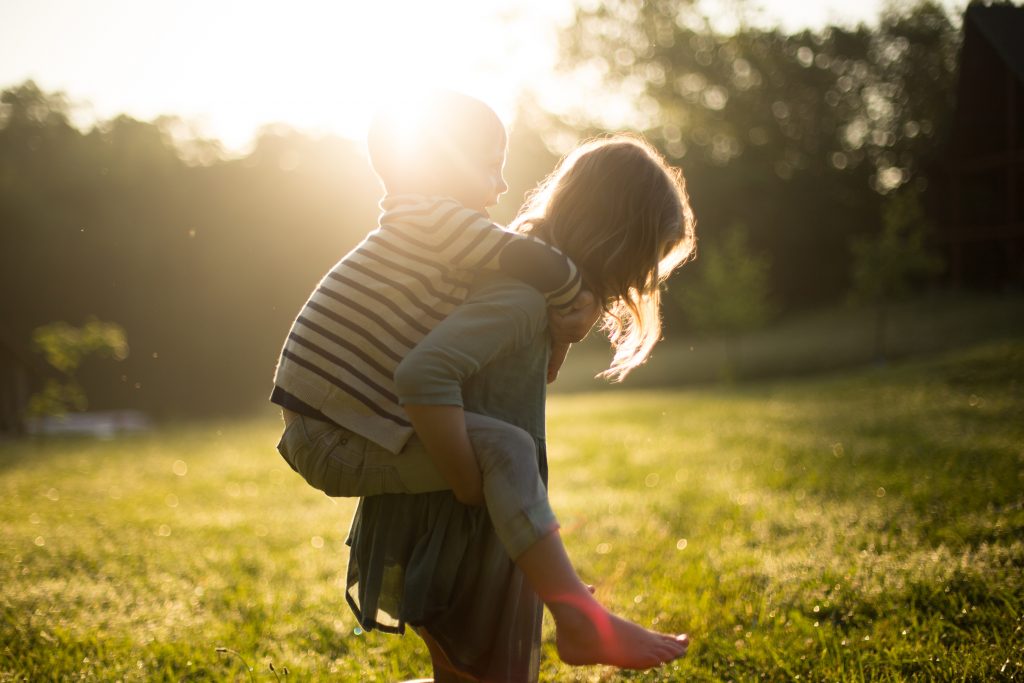“There are only two lasting bequeaths we can hope to give our children. One of these is roots and the other wings.”
– Johann Wolfgang von Goethe
The COVID pandemic has taken a toll on all of us, especially our children. We are now seeing its impact on their mental health. The ongoing stress, fear, grief, and uncertainty they feel has resulted in a stark rise in depression, anxiety, and stress among our youth. Children and adolescents are having a tough time coping emotionally with the challenges they have lived through and continue to face today. This pandemic-related stress and trauma may have lasting effects on the developing minds of children and teens.
There is much we can to do help our children through these difficult times. We can advocate for systemic change in a culture that adds so much added stress to their lives and we can learn how to bring more calm and balance into our own lives and our homes.
Systemic Change
Last week, a New Jersey school district recognized the importance of our children’s mental well-being and is taking real action to prioritize the mental health of their students and staff. In light of the rising levels of stress and anxiety, they are giving students and staff an Emergency Day off, not for professional development or student testing, but for everyone to rest and re-set. Superintendent Loretta Radulic explained, “It is our sincere hope that our families will be able to use this gift of time to take a moment to enjoy the season, take a breath, and enjoy a long weekend amidst the bustle.”
Personal Change
We can also turn to our own homes and to our own inner work to help our children build positive emotions and inner resilience. One of the most difficult parts of parenting is watching our children struggle. Instinctually, we want to swoop in and make their pain go away. Mindfulness teaches us many valuable lessons about difficult feelings that we can pass on to our children.
Mindfulness teaches us that pain, fear, loss, and sadness are parts of our human experience. There is no avoiding these challenging emotions. The healthiest way to meet these strong emotions is to accept them, know that it is OK to feel them, and recognize our capacity to let them be felt. There is nothing wrong with us for having these feelings. And, through our mindfulness practice, we learn that we have the capacity to be with our feelings and we can let them move through us. In this way, we actually expand our capacity to be with our feelings rather than feel completely overwhelmed by them.
All of these are critical mindfulness lessons that we can pass on to our children. By helping them avoid these feelings, we inadvertently send them the wrong messages that they should not have these feelings or that that they cannot handle their feelings. This may serve to grow rather than reduce their anxiety. Instead, our job is to love our children unconditionally, support them through difficult times, and help them see that it is through these unavoidable challenges and strong emotions that they are building inner strength, resilience, and the capacity to be with their emotional experiences.
Parents often ask how they can bring the calming benefits of mindfulness to their children. The answer is clear – it all starts with you. We cannot give our children what we do not have. Mindfulness helps parents build patience, resilience, joy, optimism, compassion, calm and so much more. The best way to teach our children how to cultivate these qualities is by role modeling these qualities ourselves.
This holiday season, give it a try. Start small. The little, everyday moments can really make a big difference in your and your child’s lives. Here are a few tips on how to be more mindful this holiday season and how to spread mindfulness to your children. Remember to:
- Slow down
- Turn off your phone and be fully present where you are
- Pause and take a few slow deep breaths throughout your day to down-regulate your nervous system
- Deeply listen to those around you with your full attention
- Savor the ordinary moments with your child, that really aren’t so ordinary
- Practice patience
- Let go of judgment and try to see the world through their eyes
- Focus on what really matters
- Practice self-care and be sure to take care of yourself, in doing so you offer your best self – the calmer, loving you, to your children.
Join us in 2022 to learn how to cultivate more calm, resilience and joy in your life! Then, share it with those you love!

